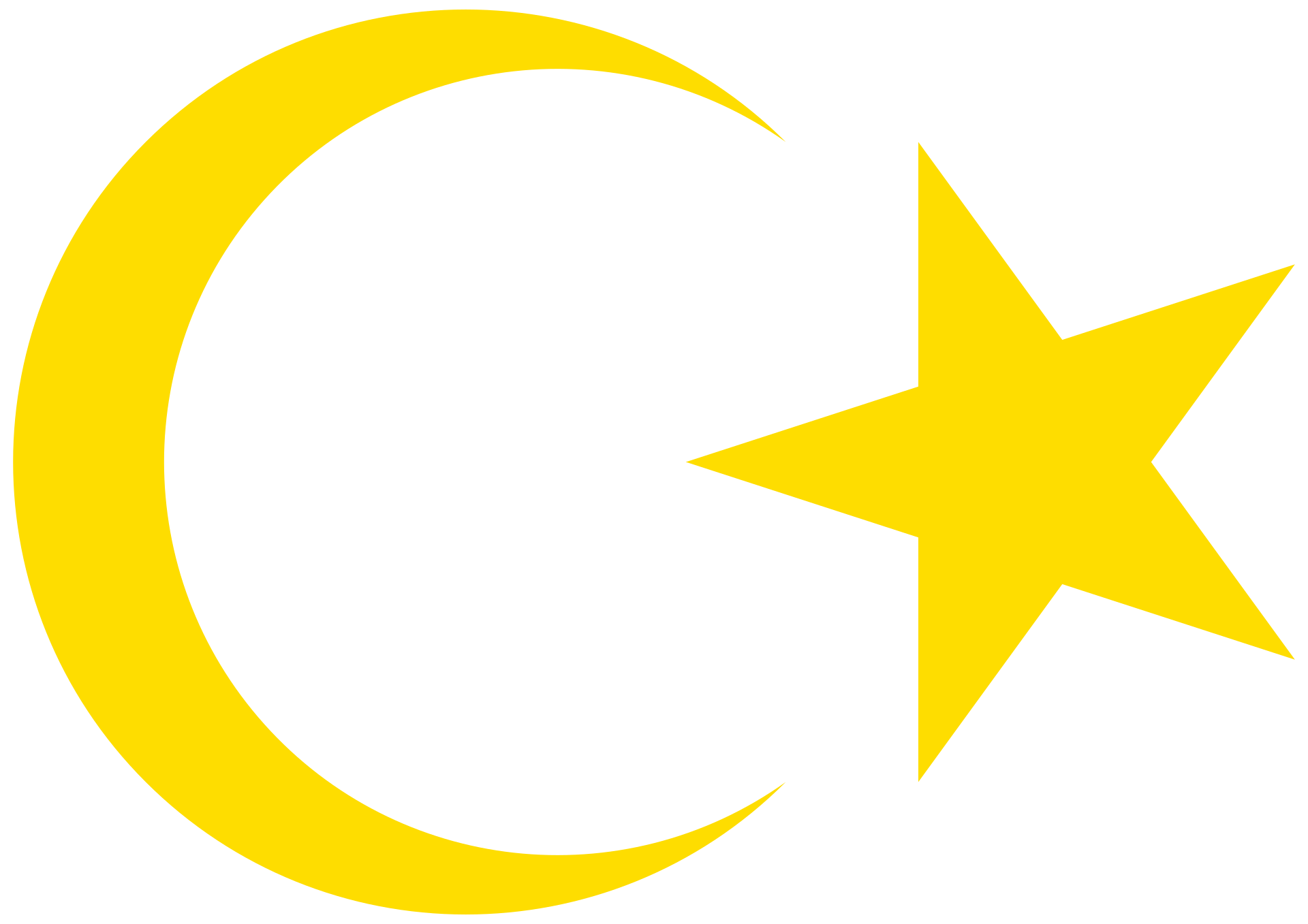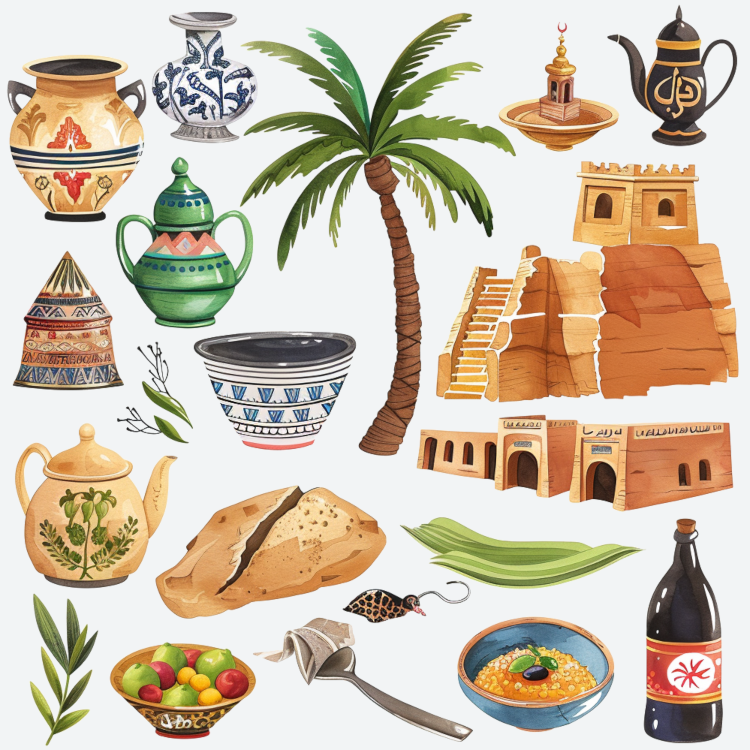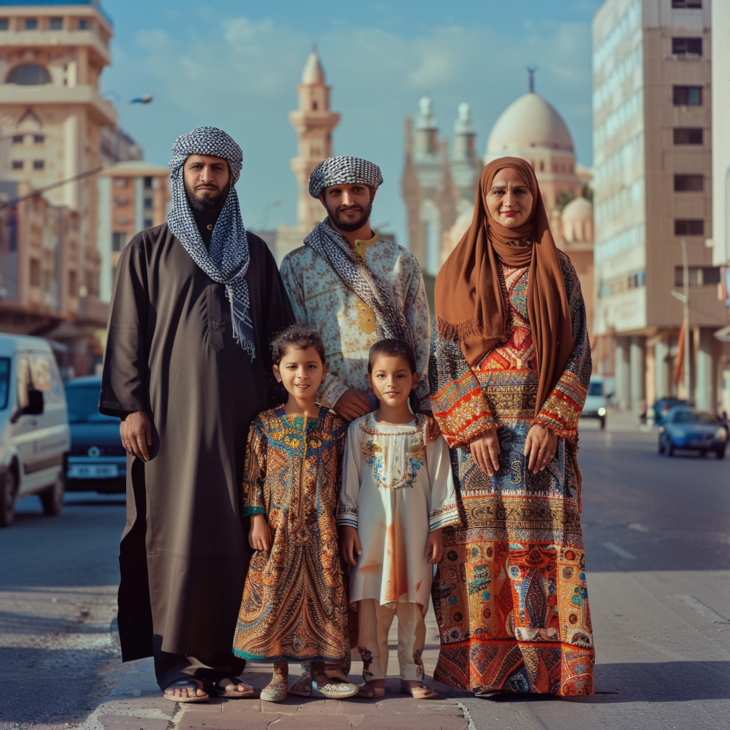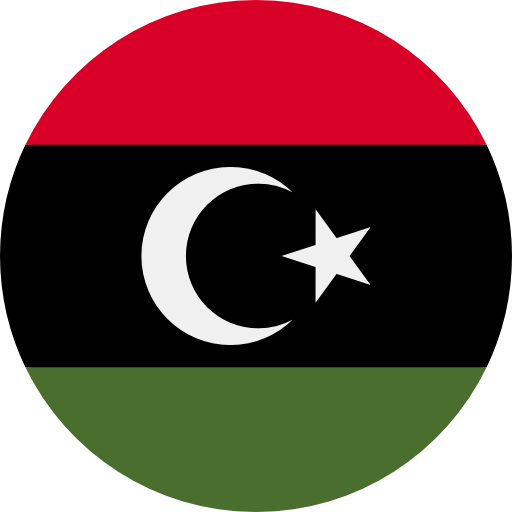About LY

Location
Libya is a country located in North Africa, bordered by the Mediterranean Sea to the north, Egypt to the east, Sudan to the southeast, Chad and Niger to the south, Algeria to the west, and Tunisia to the northwest.
Capital
The capital city of Libya is Tripoli, located on the country's Mediterranean coast.
Population
As of the latest estimates, Libya has a population of approximately 6.9 million people.
Area
Libya covers a total land area of about 1,759,541 square kilometers (679,362 square miles), making it the fourth largest country in Africa.
Official Language
Arabic is the official language of Libya.
Government
Libya is currently experiencing political instability and has been in a state of conflict since the overthrow of Muammar Gaddafi's regime in 2011. The country is officially governed by the Government of National Accord (GNA), based in Tripoli, but rival factions and armed groups are controlling various parts of the country.
Independence
Libya gained independence from Italy on December 24, 1951.
Currency
The currency of Libya is the Libyan Dinar (LYD).
Economy
Libya's economy is heavily dependent on oil exports, with the oil and gas sector accounting for the majority of government revenue and GDP. However, ongoing conflict and political instability have disrupted oil production and export activities, leading to economic challenges.
Culture
Libya has a rich cultural heritage influenced by its history as a crossroads of civilizations, including Phoenician, Greek, Roman, Arab, and Ottoman influences. Traditional Libyan culture values hospitality, family, and community, with customs and traditions varying across different regions.
Religion
Islam is the predominant religion in Libya, with the majority of the population adhering to Sunni Islam. There are also small Christian and indigenous religious communities.
Landscapes
Libya's landscapes consist of vast desert regions, including the Sahara Desert in the south, as well as coastal plains along the Mediterranean Sea.
Challenges
Libya faces significant challenges related to political instability, armed conflict, terrorism, human rights abuses, and humanitarian crises. The country's infrastructure has been heavily damaged, and basic services such as healthcare, education, and electricity are often inadequate.

National Items of Libya
Date Palm
The Date Palm is a significant symbol in Libya, representing agricultural heritage, sustenance, and the country's desert landscapes.
Libyan Desert
The Libyan Desert, part of the Sahara, symbolizes the vast, arid landscapes that cover much of the country, highlighting its natural beauty and harsh environment.
Libyan Tea
Libyan tea, often prepared with a thick layer of foam, is a traditional beverage. It symbolizes hospitality, cultural heritage, and social gatherings.
Tuareg People
The Tuareg people, a Berber ethnic group, symbolize the cultural diversity, traditional lifestyle, and historical significance of nomadic tribes in Libya.
Sabratha Ruins
The ancient ruins of Sabratha, a UNESCO World Heritage site, symbolize Libya's rich historical and archaeological heritage from the Roman period.
Ghadames
Ghadames, an oasis town known as the "Pearl of the Desert," symbolizes traditional architecture, cultural heritage, and the historical significance of trade routes.
Bazeen
Bazeen is a traditional Libyan dish made from barley dough and served with meat and vegetables. It symbolizes the rich culinary heritage and traditional foods of Libya.
Mediterranean Coastline
The Mediterranean coastline of Libya, featuring beautiful beaches and coastal towns, symbolizes the country's natural beauty, strategic location, and economic significance.
Libyan Gold Jewelry
Traditional Libyan gold jewelry, known for its intricate designs, symbolizes rich artisanal heritage, cultural identity, and craftsmanship.
Cyrene Ruins
The ancient Greek city of Cyrene, another UNESCO World Heritage site, symbolizes Hellenistic influences' historical and archaeological significance in Libya.
Olive Oil
Olive oil is a staple in Libyan cuisine and agriculture. It symbolizes the country's agricultural heritage, economic importance, and culinary traditions.
Tobruk
Tobruk, a city with historical significance from World War II, symbolizes Libya's modern history, strategic importance, and resilience.
Amazigh Language
The Amazigh language, spoken by the Berber people, symbolizes the linguistic heritage, cultural diversity, and identity of indigenous groups in Libya.
Libyan Attire
Traditional Libyan attire, including garments like the "Jard," symbolizes cultural heritage, identity, and traditional fashion.
Leptis Magna
Leptis Magna, one of the best-preserved Roman cities in the Mediterranean, symbolizes the historical richness, architectural marvel, and cultural heritage of Libya.
Henna
Henna is commonly used in Libyan cultural and religious ceremonies. It symbolizes cultural heritage, traditional practices, and artistic expression.
Red Crescent
The Red Crescent is a symbol of humanitarian aid and social services in Libya, representing the country's commitment to helping those in need.
Tripoli
Tripoli, the capital city, symbolizes the political, cultural, and economic heart of modern Libya.
Libyan Desert Glass
Libyan Desert Glass, a naturally occurring glass found in the deserts of Libya, symbolizes the unique geological heritage and natural wonders of the country.

This anthem expresses loyalty and dedication to the nation of Libya and its flag, as well as a commitment to struggle and victory for the nation.
The national anthem of Libya is called "Libya, Libya, Libya" in Arabic. Here are the lyrics in Arabic along with an English translation:
ليبيا ليبيا ليبيا
وطني الأمين
ليبيا ليبيا ليبيا
عهد الوفاء يفديك بالروح ياوطني
ليبيا ليبيا ليبيا
للعلم للعلم للعلم
رايتك للعلم
والنصر للجهاد والنصر للجهاد
النصر النصر للأمة للعلم
Libya, Libya, Libya
My homeland, the trustworthy
Libya, Libya, Libya
The covenant of loyalty sacrifices for you, oh my homeland
Libya, Libya, Libya
For the flag, for the flag, for the flag
I raise you for the flag
And victory for the struggle, and victory for the struggle
Victory, victory for the nation, for the flag


